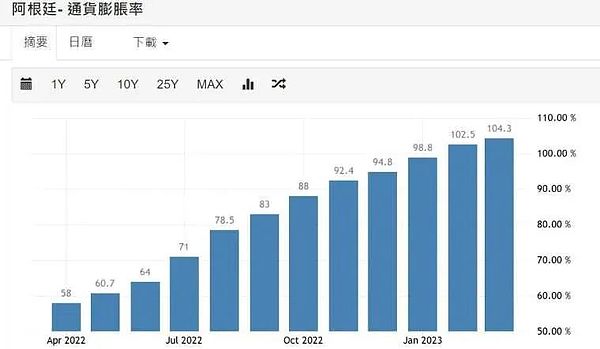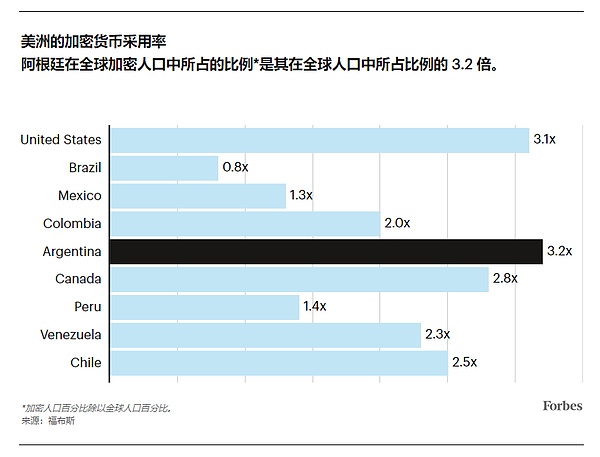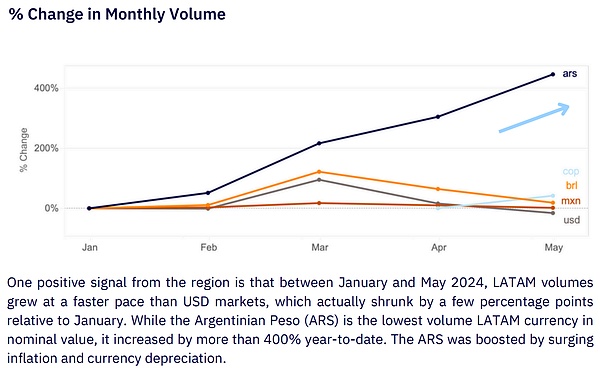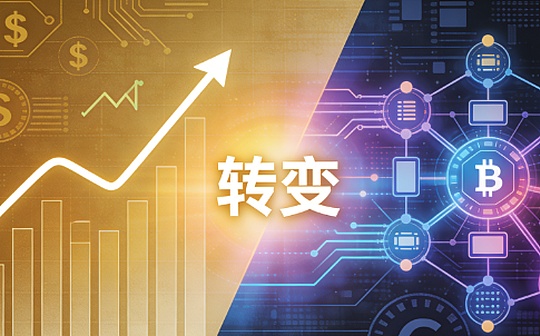
Source: Aiying Payment Compliance
The Argentina Central Bank recently announced a new policy to prepare for the sale of USD on the unofficial forex markets to cope with rising inflation and control the money supply.The news was posted on social media platform X by Economy Minister Louis Caputo, who said the measure would help further slow inflation, calling it a historic innovation in Argentina’s economic management.Starting next Monday,Central banks will sell equal amounts of dollars on the “CCL” unofficial market while buying dollars in pesos in the official foreign exchange market to keep the money supply balanced.Caputo stressed that Argentina will no longer solve the problem by printing more pesos, calling the move a “last blow” with the goal of completely defeating inflation.
As for the effectiveness of this measure, we will not talk about the innovation, but it is serious.Aiying systematically sorted out the current economic situation in Argentina and the current cryptocurrency market, so that everyone can have a comprehensive understanding of Argentina’s special market.
Part One: Argentina’s economic background
1. Current situation of inflation

Argentina’s inflation rate rose to 104.3% in the year to March (Photo: tradedeconomics)
Argentina is currently facing serious inflation problems, with an inflation rate of up to 276%.This means that the prices of goods and services soared, bringing tremendous pressure to the lives of ordinary people.Take beef as an example. As an important part of Argentina’s food culture, beef prices have risen to a point that many people cannot bear.The steak that used to be everywhere has now become a luxury.Many families have to switch to relatively cheap pork and chicken to cope with rising food costs.
2. The history of depreciation
The problem of depreciation of the peso has been plaguing the country since Argentina ended its 1:1 peg to the dollar in 2002.Policy changes at the time led to a rapid depreciation of the Peso, which triggered a series of economic problems.In 2002, 1 US dollar could be exchanged for about 4 pesos, and by the time the COVID-19 outbreak in 2020, the exchange rate had reached 64 pesos per dollar.
The depreciation of the peso has become even worse in the past few years.By the end of 2023, the exchange rate of 1 US dollar against the peso has reached about 350 pesos.In early 2024, the new President Javier Mile adopted a series of “economic shock therapy”, including a substantial depreciation of peso.As a result, the peso exchange rate against the US dollar further depreciated by more than 50%, causing the economic situation in Argentina to be even more complicated.
Although the peso depreciation briefly boosted trade growth at the beginning of the century, the benefit gradually disappeared after 2009.Argentina’s economic performance has continued to be sluggish over the past decade, with inflation-adjusted GDP falling on average 0.1% per year, and growth has occurred in just four years.
This continued currency depreciation has had a profound impact on Argentina’s economy.Many Argentines lost trust in their own currencies and turned to the US dollar or other stable forms of currency to protect their wealth.In addition, currency depreciation has also led to soaring domestic prices, exacerbating the pressure of inflation, and causing the cost of living for ordinary people to continue to rise.
3. The impact of external factors on the economy
Argentina’s economy is not only affected by internal management issues, but also deeply affected by external factors.In recent years, frequent extreme weather, especially the drought caused by the La Niña phenomenon, has brought great challenges to agricultural production.In 2023, Argentina experienced the worst drought in 60 years, with the sharp decline in yields of major crops such as soybeans, corn and wheat, causing agricultural output to drop by 26%, further pushing up domestic food prices.Specifically, soybean production fell by about 20%, corn production decreased by 25%, and wheat production decreased by 30%, which directly affected Argentina’s grain export income.
In addition, Argentina is also facing the impact of changes in the global economic environment.In 2023, the Federal Reserve raised interest rates, causing the slowdown in the flow of international capital to flow to emerging markets, and the external financing environment in Argentina became even more severe.Global commodity price fluctuations have also had an adverse impact on Argentina, especially the fluctuations in energy prices have had an impact on its export revenue.For example, fluctuations in global oil prices have caused Argentina’s energy export revenue to drop by 15%.
Argentina’s financial system is also facing challenges.Due to the international market’s concerns about Argentina’s debt, foreign capital inflows have decreased and foreign exchange reserves have continued to decline.By the end of 2023, Argentina’s foreign exchange reserves had dropped to US$30 billion, compared with a year ago that of US$45 billion.
Part 2: Argentinians’ response
1. Traditional coping methods
Faced with peso depreciation and inflation, Argentines have traditionally purchased US dollars through black market institutions to maintain their value.Due to the huge differences between the official exchange rate and the black market exchange rate, black market trading has become a way for many to preserve their wealth.Converting US dollars on the black market is usually much higher than the official exchange rate, or even twice the official exchange rate.For example, the official exchange rate may be 1 USD to 100 pesos, while on the black market it may reach 1 USD to 200 pesos.
However, black market trading also has significant risks.First, you may encounter fraud during the transaction, such as receiving counterfeit currency or being cheated of cash.Secondly, participating in black market transactions has certain legal risks, because such transactions are not legally allowed.In addition, since black market transactions lack the protection of formal financial institutions, the security and legality of transactions are difficult to guarantee, and they may face dangers such as robbery.
2. New choice of cryptocurrency
With the development of technology and the diversification of financial instruments,Cryptocurrencies have become a new option to fight inflation and preserve value.Argentinians use cryptocurrencies, especially stablecoins such as Tether (USDT), to deal with peso depreciation and high inflation.According to relevant statistics, Argentina is one of the countries with the highest cryptocurrency adoption rates in the world, and many residents regard it as a safe means of storage of wealth.

Of the world’s 55 largest exchanges, 2.5 million are from Argentina, most of whom buy and hold USDT on exchanges, rather than other cryptocurrencies with higher volatility.
Part 3: New VASPs regulations and the development of cryptocurrency market
Previously, Aiying Aiying wrote in an article[Research Report] In-depth analysis of the cryptocurrency market in Latin America in 2024: Detailed interpretation of legalization from El Salvador and Brazil to regional innovation》There are introductions:
Argentina’s cryptocurrency market also showed significant growth in 2024, especially driven by high inflation and currency depreciation.Argentina’s trading volume grew by more than 400% between January and May 2024, but its market share remains lower than Brazil and Mexico due to its small overall market size.

1. CNV resolutions and regulatory measures
In order to regulate the cryptocurrency market, the Argentine National Securities Commission (CNV) announced in June 2024 that it launched the Virtual Asset Service Providers (VASPs) Registration Center.Under these new regulations, all individuals and entities engaged in activities related to virtual assets, regardless of whether their place of residence or registration is in Argentina, must register with CNV.
These activities includeExchange of virtual assets and fiat currencies, exchange between virtual assets, transfer of virtual assets, custody and/or management of virtual assets or control tools, and financial services related to the issuance or sale of virtual assets.Registration is also required for entities that conduct activities through the use of the “.ar” domain name, in partnership with third parties, subsidiaries or affiliates in Argentina, and those that advertise for Argentina residents.
VASPs need to provide relevant information and documents when registering to ensure that they comply with the regulatory requirements of CNV.If the total transaction amount of VASPs does not exceed 35,000 purchasing power units (UVAs) within one month, they can be exempted from registration obligations.Nevertheless, registration does not mean that CNV grants licensing these activities, but rather to ensure transparency and normativeness of the market.
As of June 2024, 35 companies have completed registration, including four foreign exchanges.These measures of CNV are designed to improve market transparency, protect investors’ rights and promote the healthy development of the cryptocurrency market.However, as the implementation of regulatory measures is still progressing, the market’s response and adaptation remains to be seen.
2. New new regulations on tax payment in cryptocurrency
The Argentine government has released a new cryptocurrency tax policy in 2024, aiming to promote the development of this emerging market by exempting crypto assets under certain conditions.Under the new rules, taxpayers holding cryptocurrency assets worth no more than $100,000 will be exempted from paying taxes.
To enjoy this preferential policy, taxpayers must deposit their cryptocurrency assets in registered virtual asset service providers (VASPs).Taxpayers can enjoy tax exemption only if assets are deposited in these registered VASPs.These VASPs need to be registered with the Argentina National Securities Commission (CNV) and comply with relevant codes of conduct.
In addition, the new tax policy also stipulates that for cryptocurrency assets holding more than $100,000, as long as these assets are introduced into the Argentine financial system and not withdrawn by 2026, or used for specific types of investments defined by the executive department, the tax rate will also be zero.This tax incentive is designed to encourage cryptocurrency holders to legalize their assets and bring more money into Argentina’s financial system.
Part 4: Local crypto companies
In Argentina, there are many cryptocurrency businesses and exchanges that have already operated in the country or plan to expand their operations.Here are some crypto companies that are actively operating in Argentina compiled by Aiying:
-
Ripio:
-
Ripio is a native cryptocurrency exchange in Argentina that offers a variety of cryptocurrency trading and wallet services.The company also partnered with Paxos to distribute Lift Dollar (USDL) to Argentina consumers.
-
SatoshiTango:
-
SatoshiTango is another widely used cryptocurrency trading platform in Argentina that provides services to buy, sell and store cryptocurrencies.The platform also provides payment solutions for Bitcoin.
-
Decrypto:
-
Decrypto is a company that provides cryptocurrency trading services to the Argentine market, aiming to provide users with a simple and secure digital currency trading experience.
-
Lemon Cash:
-
Lemon Cash is a company that provides cryptocurrency trading and wallet services, and has also launched a cryptocurrency debit card, where users can use the card to use cryptocurrency in their daily consumption.About 2 million Argentines use Lemon Cash’s services.
-
Koibanx:
-
Koibanx focuses on the application of blockchain technology and provides blockchain-based financial technology solutions to help Argentina’s financial institutions and enterprises achieve digital transformation.
-
OKX:
-
OKX is an internationally renowned cryptocurrency exchange that has officially entered the Argentine market in 2024, providing trading platforms, self-custodial wallets and NFT trading services.
-
Binance:
-
Binance is one of the world’s largest cryptocurrency trading platforms and also provides a wide range of cryptocurrency trading services in Argentina.In April 2023, Binance announced the launch of trading services in Argentina.
-
Bitso:
-
Bitso is a Mexico-based cryptocurrency exchange, but has a wide range of operations in Latin America, including Argentina.Bitso provides trading services for a variety of cryptocurrencies and occupies an important position in the Argentine market.
-
Paxos
Axos International, an UAE-based subsidiary, announced that Lift Dollar (USDL) has now been available to Argentina consumers through distribution partners Ripio, Buenbit, Manteca and Plus Crypto.








